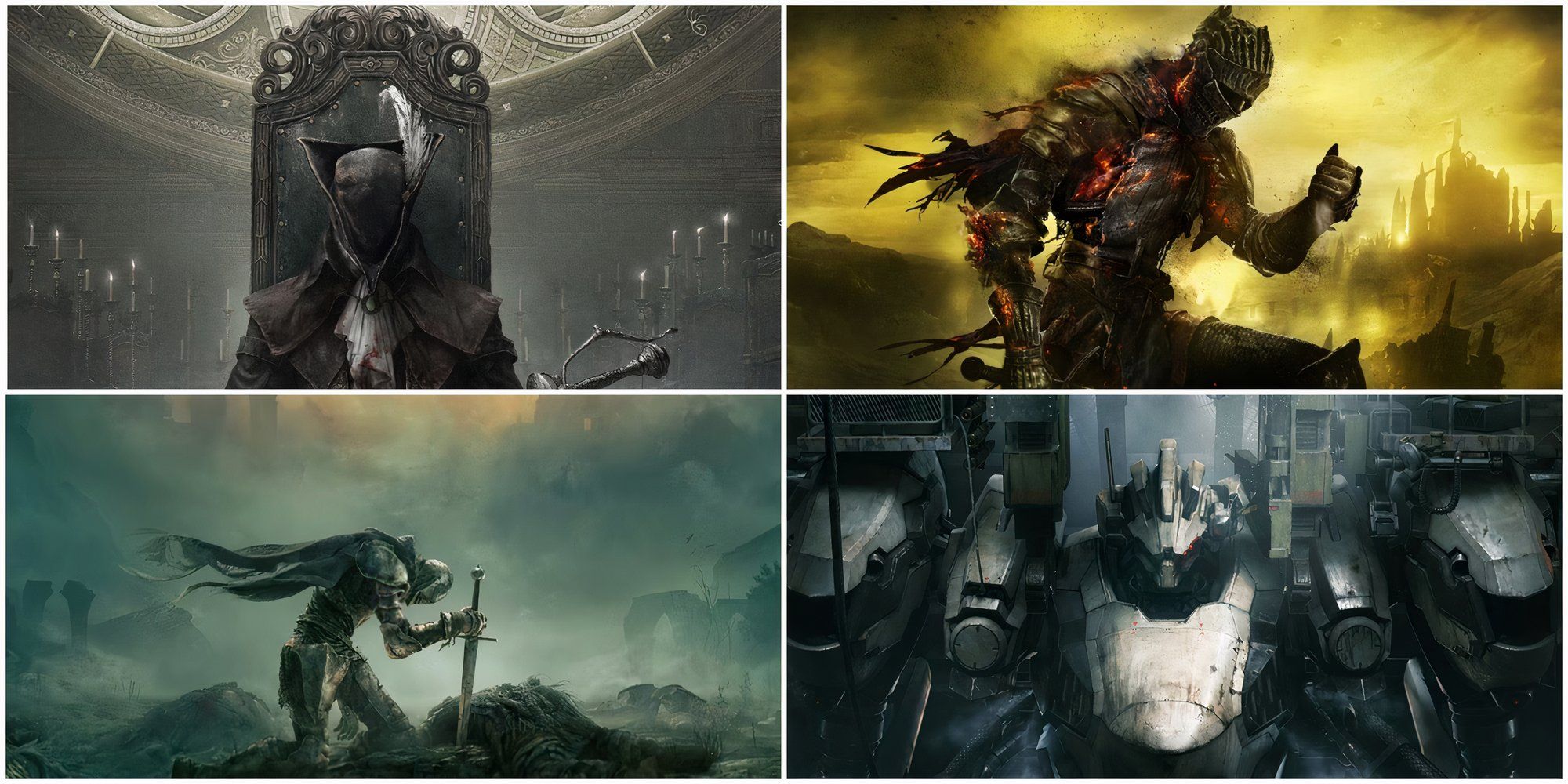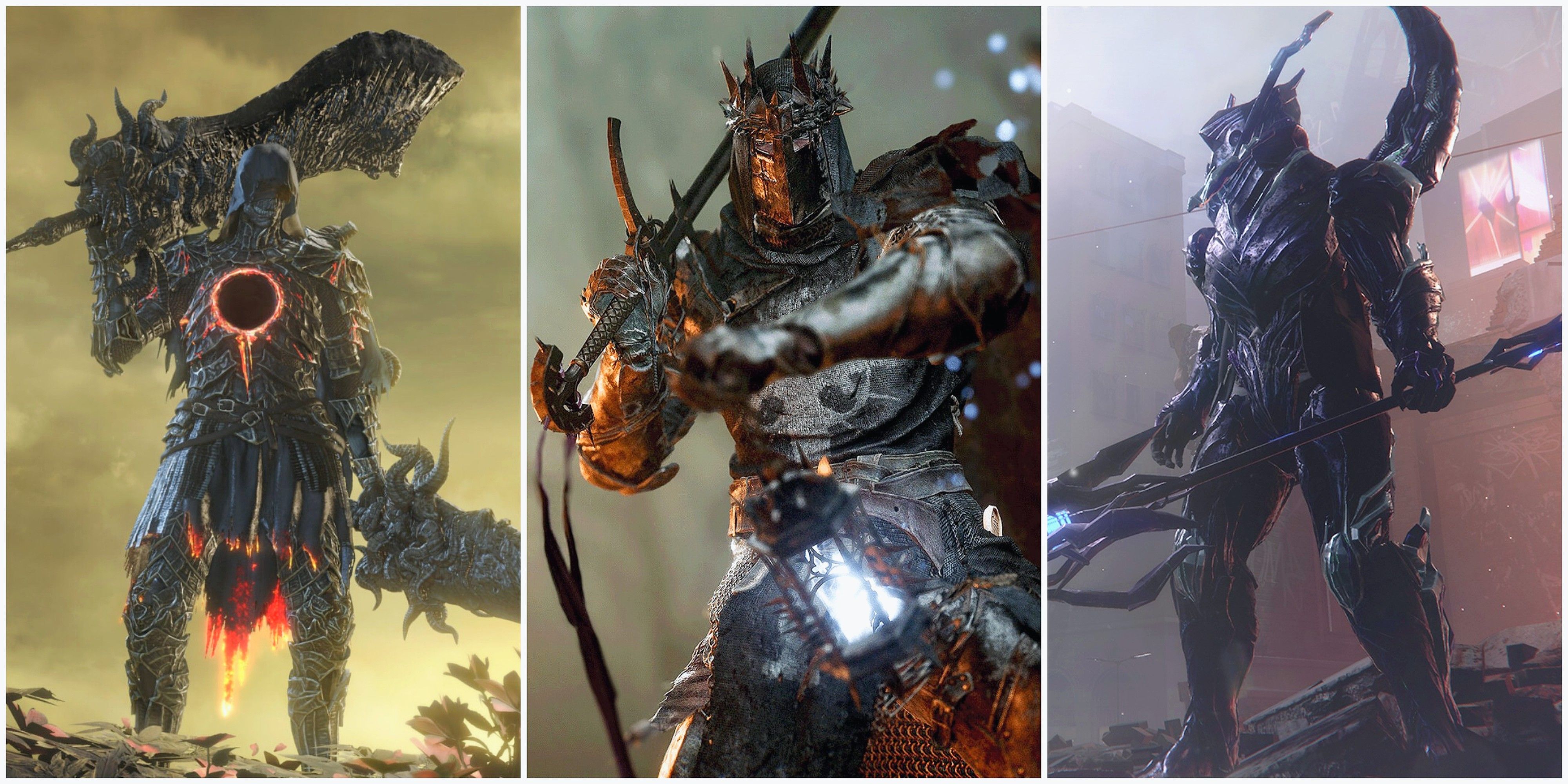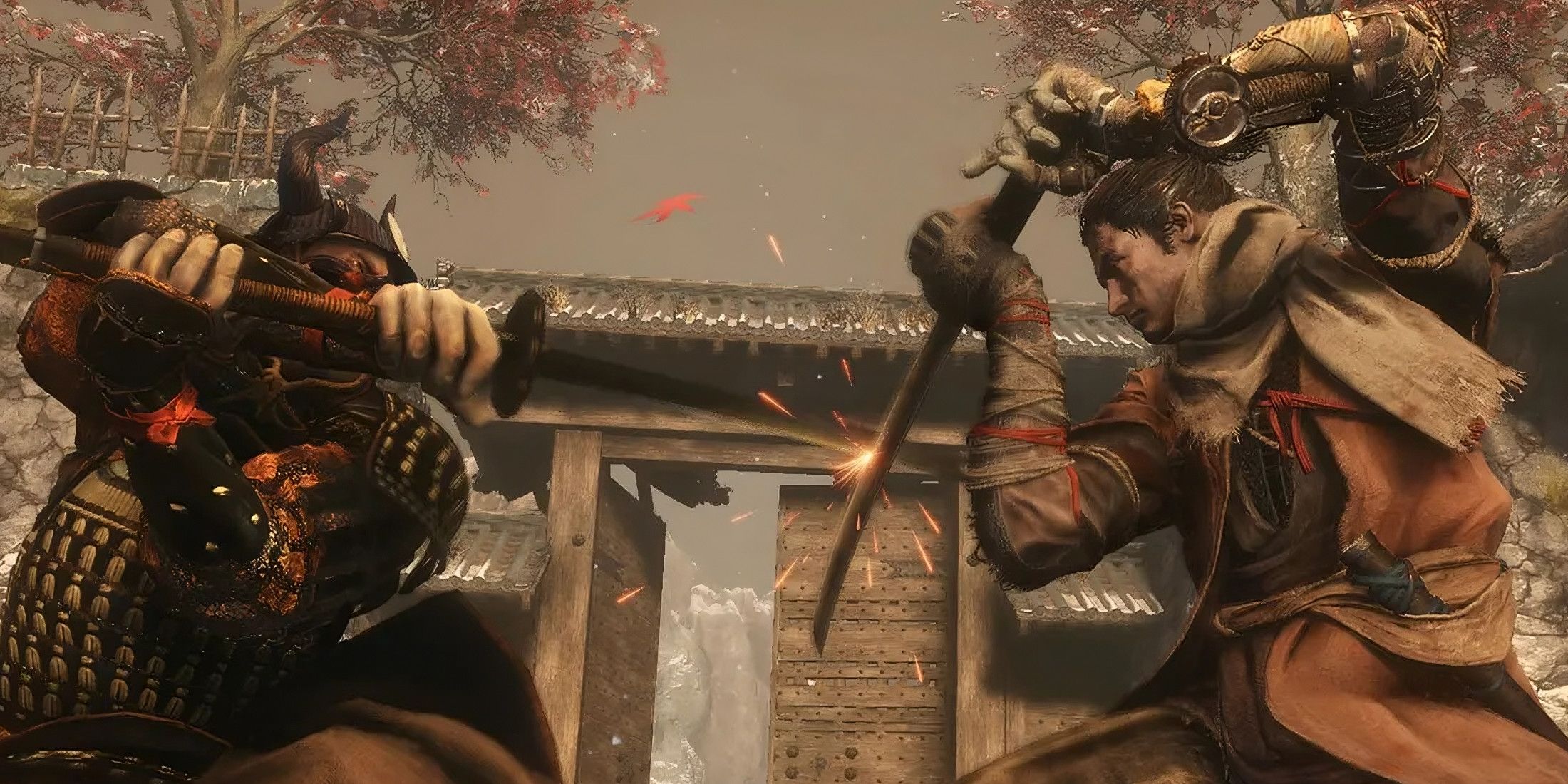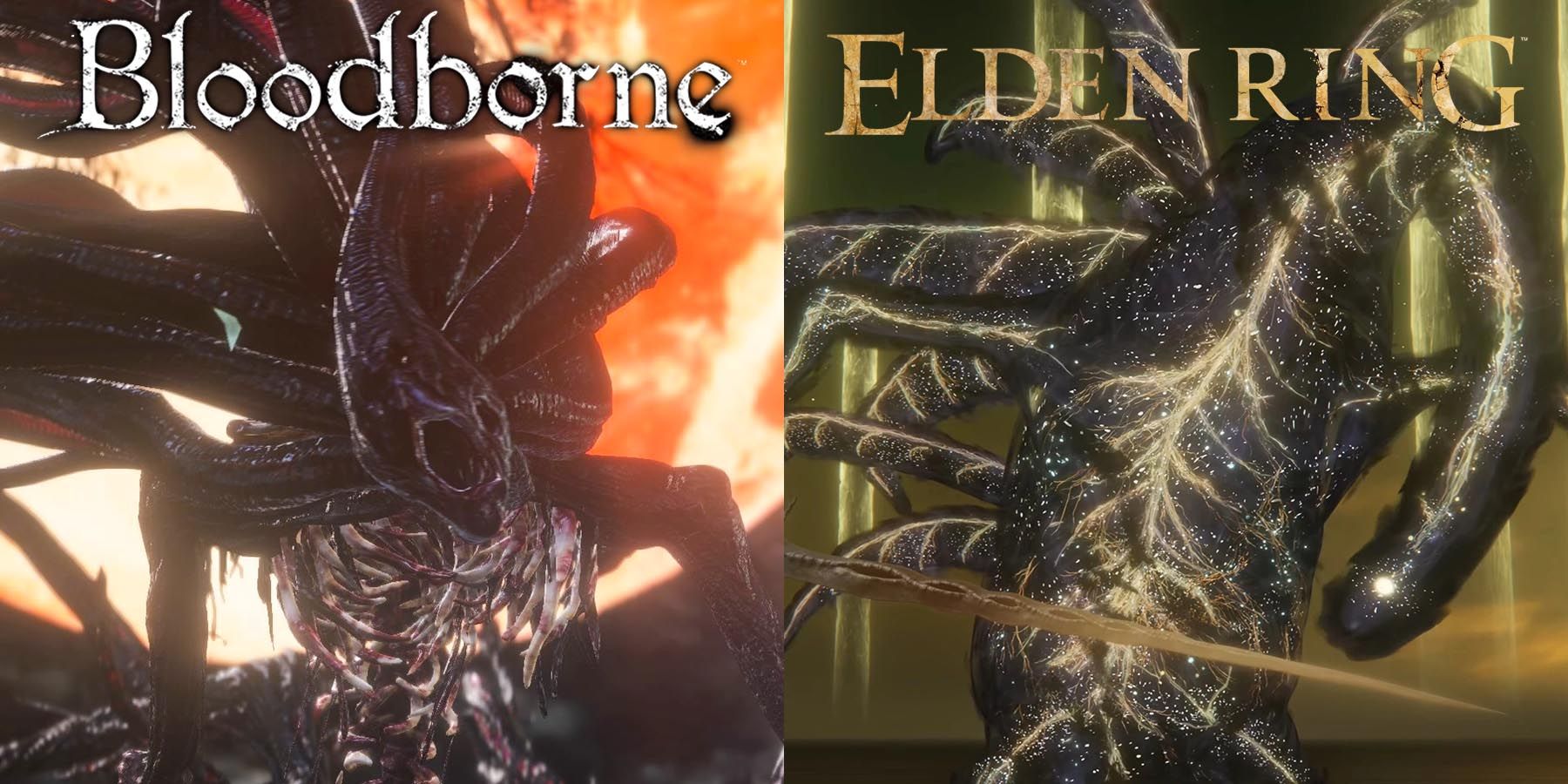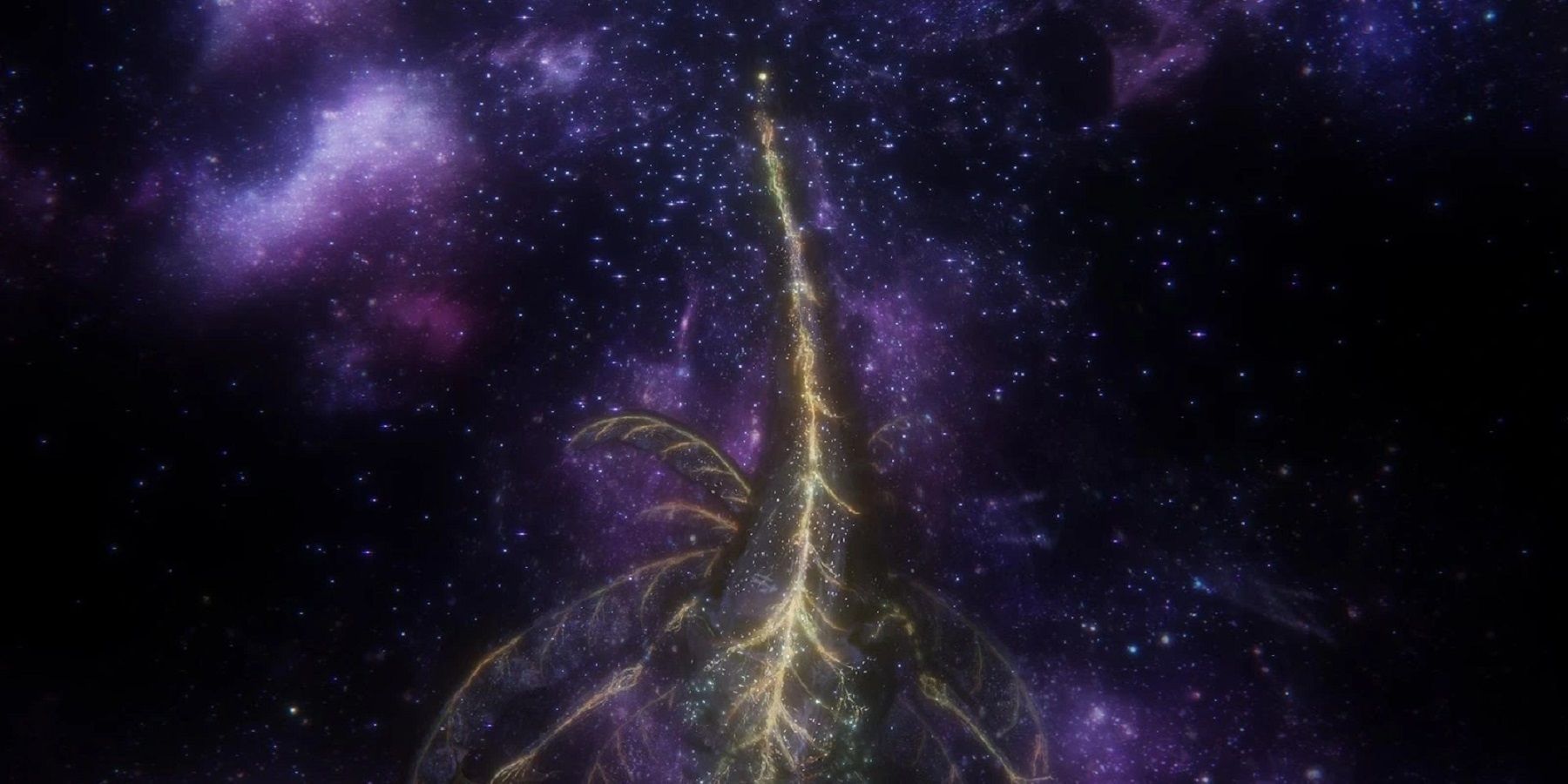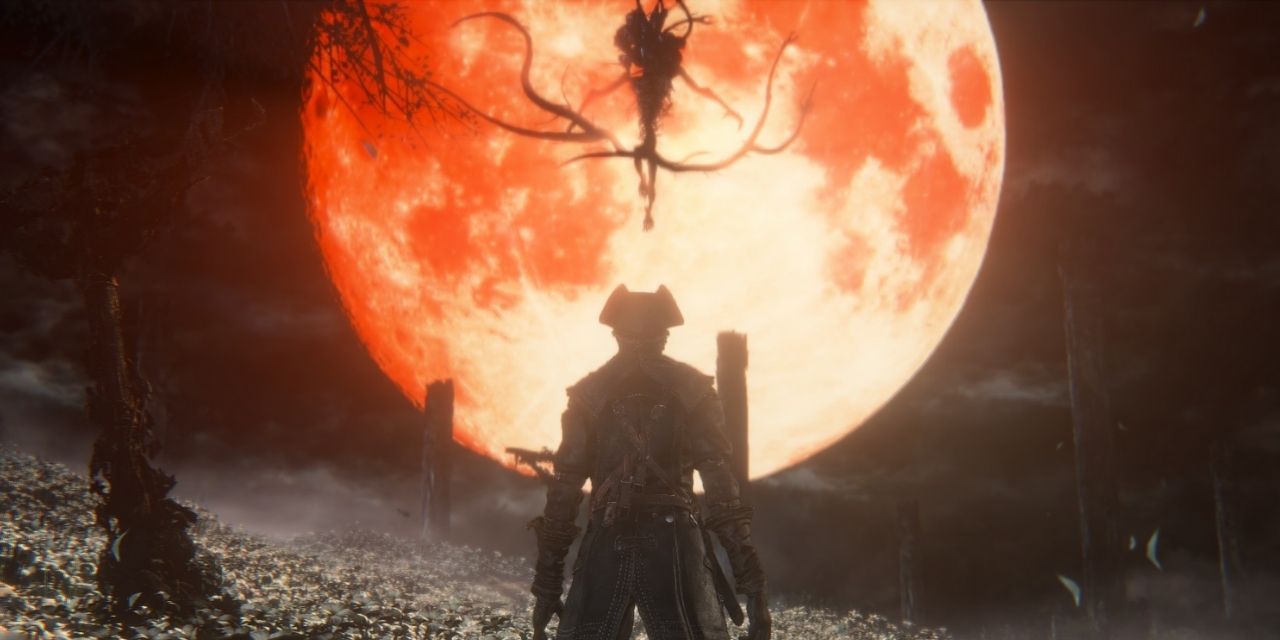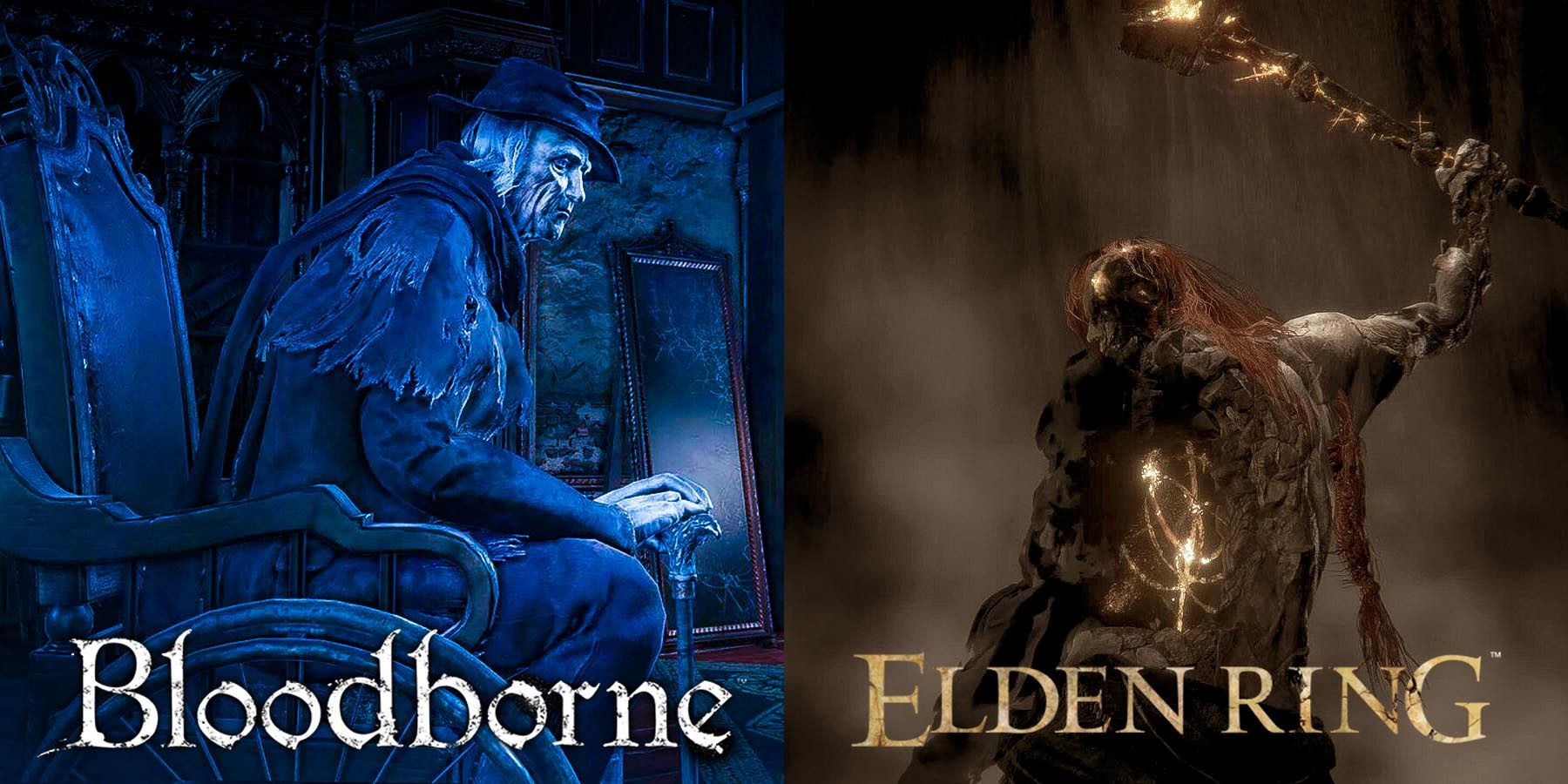FromSoftware has developed a reputation for creating incredibly difficult games, but perhaps more importantly, it has a reputation for worlds with deep lore and intriguing stories. A lot of FromSoft games require players to explore and learn to piece together everything, including Bloodborne and Elden Ring.
WARNING: MAJOR SPOILERS FOR ELDEN RING AND BLOODBORNE AHEADBoth are serious departures from FromSoft’s catalog. Bloodborne’s gothic Victorian setting and Lovecraftian horror set it apart, while Elden Ring’s open world shows just how adaptable its typical formula is. Despite this, there are several similarities between the two games and perhaps every single one of FromSoft’s games, but it’s really noticeable when looking at Bloodborne’s Moon Presence and Elden Ring’s Elden Beast.
The Moon Presence and Elden Beast Are Otherworldy Gods
The Moon Presence and The Elden Beast are both final bosses of their respective games, although players will face the Elden beast in all Elden Ring endings and The Moon Presence has to be unlocked by eating umbilical cords. But they are not from their respective worlds.
According to Elden Ring lore, “The Greater Will sent a golden star bearing a beast into the Lands Between, which would later become the Elden Ring.” The Elden Beast, then, is from the Stars and is a manifestation of the Ring, the Golden Order, and The Greater Will. It is a god in physical form from somewhere far away.
This adds up perfectly, if in a different context, with the Moon Presence. It is a Great One, one of the many multi-dimensional and Lovecraftian beings in Bloodborne. It first came to the waking world by the beckoning of Laurence and eventually struck a deal with the First Hunter Gehrman, creating and manipulating the Hunter’s Dream.
These Bloodborne, Elden Ring Bosses Are Not Inherently Malevolent, Even If They Control The World
The exact motivations of either creature are also a little unclear, with neither being exactly malevolent in the grand scheme of the world—even if they sort of control it. The Moon Presence, for example, has nothing against the Hunters who hunt its kind (and thus the players). In fact, there are tidbits in Bloodborne’s lore that suggest the Moon Presence encourages the Hunters to kill other Great Ones.
And while it conjures and manipulates the Hunter’s Dream, it does not control every aspect of it. The only reason Bloodborne’s Hunter and the Moon Presence fight is because, after beating Gerhman, the Moon Presence tries to take the Hunter as its surrogate child and put it over the Hunter’s dream. Eating the umbilical cords prevents this and elevates the Hunter closer to a Great One, which again, the Moon Presence is not fond of.
Meanwhile, the Elden Beast is a little more complicated than that. Elden Ring’s Outer Gods influence the world indirectly, with champions who fight for them, with Empyreans/Gods/Goddesses who speak for them, and for Vassals who relay its messaging further. But, as players learn throughout Elden Ring, Marika is the one to betray the Greater Will for no good reason. It seems that, throughout the entire game, they are following Marika’s Will as it contrasts with The Greater Will.
While The Greater Will punishes Marika, it seems that more of the game’s events and tragedies relate to Marika more than it. There is no clear sign that The Greater Will is exactly malevolent, even if it’s not exactly benevolent either. All of Elden Ring’s Outer Gods are detached in a similar way, and it holds true of the Greater Will. In fact, the only reason the player must face the Elden Beast is because they burn the Erdtree, enter through it, kill its servant Radagon of the Golden Order, and seek to become the new Elden Lord and take its power over The Lands Between away.
If anything, The Greater Will is a little more mysterious than the Moon Presence, because players can see the exact divide between it and Gehrman. The divide between Marika/Radagon/The Golden Order/The Elden Ring/The Elden Beast/The Greater Will, on the other hand, is incredibly tangled.
Both The Moon Presence and The Elden Beast Hold Prisoners
One more major element connects the two: their prisoners. In both games, players must face and defeat their prisoners, Gehrman and Radagon, before being able to fight The Moon Presence or The Elden Beast. Bloodborne’s Gehrman serves this role—being the overseer, of sorts, of the Hunter’s Dream and operating as the surrogate child of The Moon Presence. Gehrman’s fight with the Hunter is about suffering—Gehrman wants to send the players where the sun rises, while players essentially free (and potentially) replace Gehrman and his suffering. This makes Bloodborne’s endings incredibly sad.
The Elden Beast, in some form or way, watches over Marika and Radagon in the Erdtree. The former is punished for shattering the Elden Ring, which is unfair to Radagon who is punished too (despite trying to repair the Ring). Marika and Radagon are one and the same; Radagon, throughout these events, is a loyal prisoner to the Elden Ring and its manifestations.
Elden Ring is available now for PC, PS4, PS5, Xbox One, and Xbox Series X. Bloodborne is available now on PS4.

